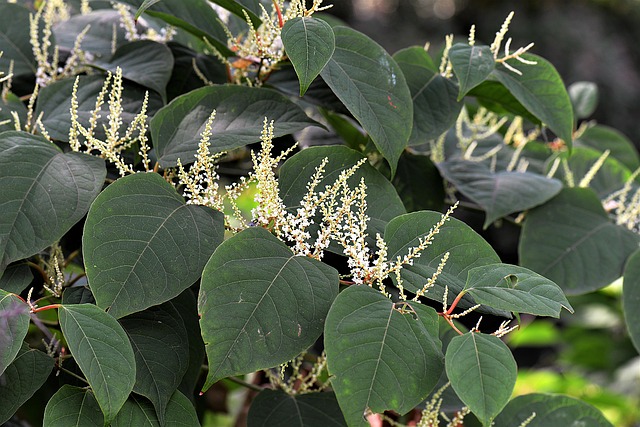
There are tens of thousands of recorded Japanese knotweed infestations across the UK. That’s a lot of coverage, and the plant is only growing more invasive over time.
But how exactly did this East Asian plant get here in the first place? Read on to find out.
How did Japanese knotweed arrive in the UK?
As its name shows, Japanese knotweed originated in Japan, and is also considered native in China and Korea. Here in the UK, it is considered an invasive species. This means it’s not native to the region, and is harmful to the native species here.
However, Japanese knotweed was actually celebrated on its arrival here in the UK. In the early half of the 1800s, German-born botanical scientist Philipp Franz von Sebold discovered it growing on the side of a volcano, and thought it would be a good ornamental plant for residential gardens. In 1854, he sent a shipment of plant specimens including Japanese Knotweed to the Royal Botanic Gardens. This shipment was shared with the Royal Botanic Gardens in Edinburgh, firmly establishing the plant in the UK.
From this introduction, it started to grow in popularity and was soon planted in many residential gardens. Japanese knotweed is a big fan of the British climate, and soon spread into the wild. The first recording of Japanese knotweed in the wild was in Maesteg, South Wales, in 1886. In the 1960s, it was determined that it had been planted in Wales to help stabilise loose soil in the coal-mining valleys. In 1981, under the Wildlife and Countryside Act, Japanese knotweed was officially declared a pest species in the UK. The Act made it illegal to allow Japanese knotweed to grow in the wild. Although you can let it grow on your property, you can face a fine if you do not control the plant and stop it spreading to the wild.
How to get rid of Japanese knotweed
Japan's various ecosystems are able to keep knotweed under control, but in the UK, knotweed is often able to grow without competition, quickly dominating and overtaking our local ecosystems. Japanese knotweed loves wet weather, which is why it is particularly prevalent in South Wales. Warmer and wetter springs and summers caused by climate change have further helped it flourish.
Fortunately, here at Total Weed Control, we can help. We provide free surveys on the state of the plant on or near your property, and we can also get rid of Japanese knotweed for you.
Learn more about our treatment plans or contact us today to arrange a free survey.
Get In Touch
